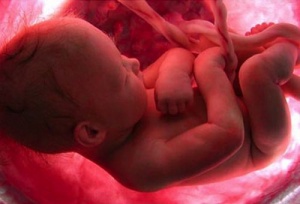Why Don't You Remember Your Birth?


Written and verified by psychologist Valeria Sabater
Surely you have asked yourself why you can remember your infancy, your adolescence… but you can never remember your birth. Why not? We’re going to tell you why in this article.
1. The neuronal neurogenesis in the first years of life makes it so you can’t remember your birth
Birth never ceases to be a traumatic event. You come into this world with the help of strange hands that remove you from the placid and cozy home that is the womb. There will surely never be a more secure location where you can be so loved.
Also Read: Causes of Endometriosis
However you come into a world full of light, shadows, and sounds without knowing how or why. Surely you feel pain. That is the moment when you cry for the first time. In addition to pain, what else do you feel in that moment? Fear? Excitement? Curiosity? We can’t know since they are questions and answers that nobody – or almost nobody – can remember.
The reason you can’t remember your birth is something called neuronal neurogenesis. This is a complicated word to describe something truly fascinating. Before being born and days later is when a process called neuronal growth occurs. Neurons superimpose onto others in an intense and energetic process. This may surprise you because… How could you forget that? Isn’t memory and cognitive competence usually associated with neurons? Isn’t more neurons a synonym for more memory?

This is not the case with newborn babies, nor infants in the first few months of life. Memories aren’t maintained because neuronal neurogenesis is an intense process; some structures superimpose over others and memories don’t last because new neurons appear. Memory isn’t stable in the first few moments of life as a result of this constant growth. This stabilizes in five to six months. New neurons continue to appear, but the process is not nearly as intense. That means you won’t be able to remember your birth.
Memory can now stabilize and will become permanent. After 6 or 7 years, the process then inverts and some neurons begin to disappear. The most intense growth period for a child is between the age of 1 and 5. They are “sponges” that soak up knowledge, and they are capable of learning several languages at the same time. However, they will be incapable of remembering those first few days of life.
See Also: Caring for Your Newborn During the First Months
2. The importance of language and memory

Surely, at this point you will already have begun to speak. Many experiments have been conducted that focus on this, essentially demonstrating that it’s easier to remember things you can explain with words. The brain organizes and stores things better in the hippocampus. This structure is associated with memory.
Therefore, it’s difficult to remember intense moments such as birth when you still didn’t have words to express it. However, there have been isolated cases where people remember small fragments of their births, small feelings… Are you one of those people?
All cited sources were thoroughly reviewed by our team to ensure their quality, reliability, currency, and validity. The bibliography of this article was considered reliable and of academic or scientific accuracy.
Götz, M., & Huttner, W. B. (2005). The cell biology of neurogenesis. Nature Reviews Molecular Cell Biology. https://doi.org/10.1038/nrm1739
Akers, K. G., Martinez-Canabal, A., Restivo, L., Yiu, A. P., De Cristofaro, A., Hsiang, H. L., … Frankland, P. W. (2014). Hippocampal neurogenesis regulates forgetting during adulthood and infancy. Science. https://doi.org/10.1126/science.1248903
This text is provided for informational purposes only and does not replace consultation with a professional. If in doubt, consult your specialist.








